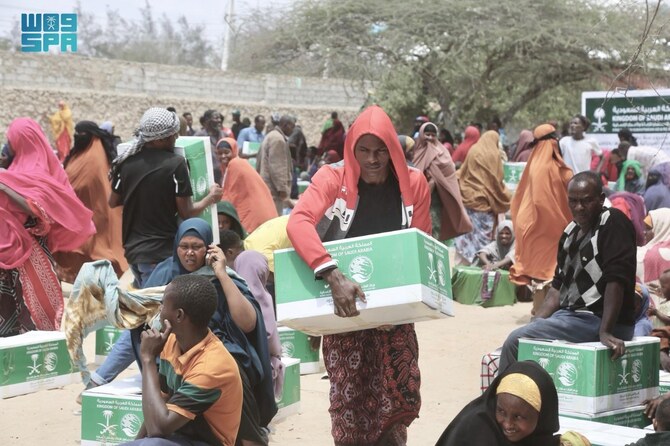- GCC (Gulf Cooperation Council)
- Government
- Lifestyle
- Opinion
- Saudi Arabia
- The Kingdom of Saudi Arabia
Saudi children find joy in Al-Hawwamah tradition.

Like the Gargee’an festival on the east coast of the Kingdom, children in the Najd region run around illuminated neighborhoods in traditional outfits, spreading holiday cheer for Al-Hawwamah. It is a time of joy and community bonding, as families open their doors and share in the festivities.
The ritual is celebrated during the month of Ramadan or on Eid Al-Fitr, depending on the family’s traditions, and is a popular custom in many parts of Riyadh, for example.

Al-Hawwamah means “wandering around” in English. During Al-Hawwamah, children — excited to receive biscuits and candies — don their best garments and stroll around their neighborhood singing folk songs.
Eid Al-Fitr, one of two Islamic holidays, marks the end of the holy month of Ramadan, during which Muslims fast from dawn to dusk, focusing on prayer and supplication throughout the day.
HIGHLIGHTS
• Al-Hawwamah means ‘wandering around’ in English.
• During Al-Hawwamah, a variety of group activities take place such as traditional dances, storytelling sessions, and henna painting.
• The celebration may extend beyond the neighborhood, with festivities being held in public places such as shopping malls.
While Eid Al-Fitr is celebrated differently across the world, with local cultures bringing their own flair to the holiday, Al-Hawwamah is a uniquely Saudi tradition.

“Al-Hawwamah in our neighborhood was amazing and simple. The imam of the mosque gathered the children. It was organized well,” said Rana Waleed, a local from Riyadh.
Sometimes, the celebration extends beyond the neighborhood, with some organizing festivities in public places such as shopping malls.
Families prepare Eid gifts for visitors, including candy, chickpeas, snacks, sugared almonds, and money. Gift money is usually distributed among relatives to younger children to save or spend on more Eid goodies.

During Al-Hawwamah, a variety of group activities take place such as traditional dances, storytelling sessions, and henna painting.
“When they announce Eid, the imam gathers people to collect zakat in the masjid’s area. During this time, he educates the children about zakat … Once they are done collecting zakat, they start Al-Hawwamah” said Eman Al-Abdulrahman, a Saudi mother from Riyadh.
Al-Hawwamah is not only a celebration of abundance but also a time to teach children about the values of generosity and community bonding.
The festival in Najd promotes meaningful connections between people and remains an important element of Saudi cultural identity, preserving its traditions while embracing the spirit of modernization and inclusion.


